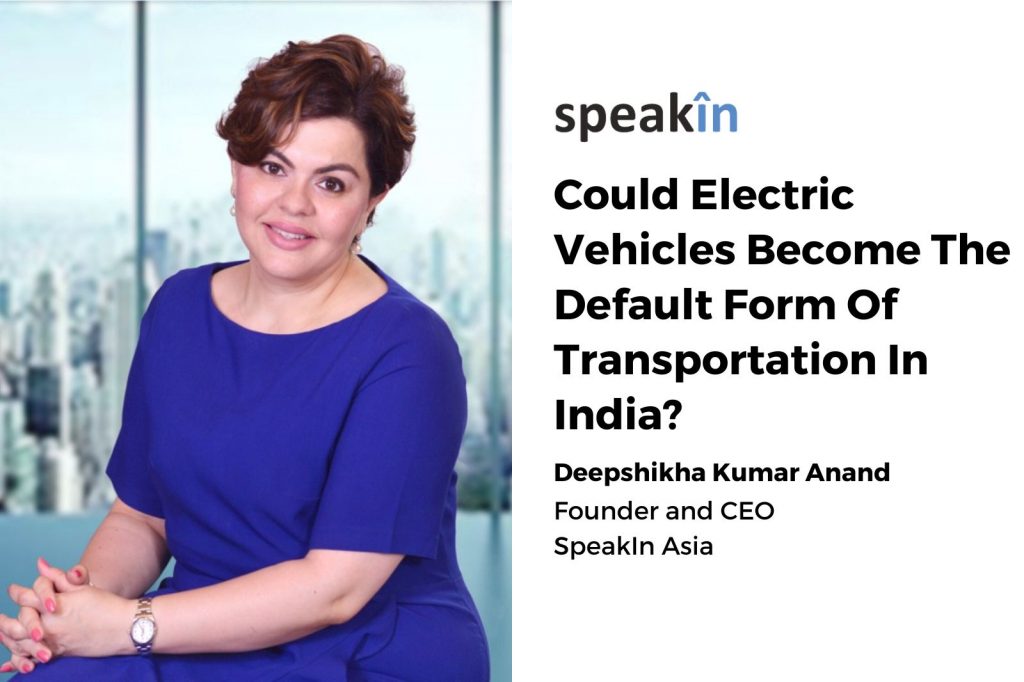Could Electric Vehicles Become The Default Form Of Transportation In India?

That Electric vehicles (EVs) are transforming the world of road transport is obvious. The global EV market grew 43 per cent annually on average over the last five years. But is India ready to embrace the revolution?
The Union Road Transport and Highways minister Nitin Gadkari believes so. India, he averred, is poised to see EVs becoming affordable amidst an abundance of choice in the electric mobility space. Mr. Gadkari said this while delivering the keynote address at the EV Summit 2021, organised last month by HDFC Ergo, India’s leading general insurer, and SpeakIn, the online education technology platform.
Mr. Gadkari said the government is determined to encourage adoption of electric vehicles and it expects these vehicles to reach price parity with petrol and diesel vehicles in the next few years. “I am confident,” he said, “that lithium-ion batteries would be manufactured fully in the country in the near future and this will be a significant boost for electric vehicles with big automakers and startups set to enter the electric mobility space. All of this will make EVs cost effective.”
The other point that Mr. Gadkari focused on was the spread of charging stations, the spread of which would significantly boost EV adoption. “The spread of charging stations,” he said, “is imminent. On our network of highways we are installing over 350 charging stations. Likewise, malls and parking spaces too will have these stations, which will remove a major impediment in the growth of EVs.”
Participating in the panel discussion that followed, Mr. Ritesh Kumar, the Managing Director and CEO of HDFC Ergo, said the falling cost of producing batteries for electric vehicles, combined with dedicated production lines in the plants 0f manufacturers, will make them cheaper to buy. “This,” he said, “in turn will naturally drive insurance costs down as well.”
Among other panelists, Mr. Naveen Munjal, Managing Director of Hero Electric Vehicles, was bullish about the EV market and anticipated a new era of electric mobility growth. He was confident that two wheelers will convert to EV technology the fastest and will form the base of the EV pyramid.
On his part, Mr. Ramesh Dorairajan, the head of Electric Vehicles at Tata Motors, said a tipping point is fast approaching in India, where adoption of EV will become inevitable.
Moderating the discussion, Deepshikha Kumar, Founder of SpeakIn, expressed the view that policy support and enhanced industry cooperation is now driving faster adoption of EVs in India. “For India,” she said, “transitioning to electric mobility is not just about achieving its low carbon goals, but also about resolving issues like air pollution and energy security.”
Could India, then, be at a unique moment in its history when policies are aligned to take the country towards making electric vehicles the default form of transportation?




